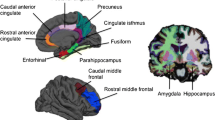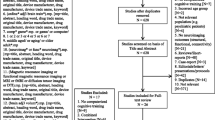Abstract
Background
Influence of cognitive intervention programs on brain activity has not been enough explored.
Aims
The aims of the present study were to clarify changes in brain activity from a cognitive intervention program utilizing the board game “Go” and to examine the relationship between brain activity and the acquisition of Go skills.
Methods
Eighteen community-dwelling older adults were randomly assigned either to an intervention group (IG), in which members attended 12 Go lessons either in groups or individually using tablet computers, or a control group (CG), in which members attended health education lectures unrelated to Go. Fluorine-18 fluorodeoxyglucose (18F-FDG) positron emission tomography (PET), cognitive assessments, and Go tests were performed before and after the intervention.
Results
The results showed different patterns of regional FDG uptake in both groups: regional cerebral glucose metabolism was significantly increased in the left middle temporal gyrus (MTG) and bilateral putamen (p < 0.01; cluster level) in the IG, and in the left superior frontal gyrus in the CG, (p < 0.01; cluster level). Furthermore, Go test scores were significantly improved in the IG (p < 0.05), and a significant association was observed between changes in Go test scores and glucose metabolism in the left MTG (p < 0.05).
Conclusions and discussion
This study indicates that a cognitive intervention program using Go may enhance brain activity. Further studies with larger populations and longer observation periods are needed to clarify the neural mechanisms underlying our Go intervention program.


Similar content being viewed by others
References
Livingston G, Sommerlad A, Orgeta V et al (2017) Dementia prevention, intervention, and care. Lancet 390:2673–2734. https://doi.org/10.1016/S0140-6736(17)31363-6
Stern Y (2002) What is cognitive reserve? Theory and research application of the reserve concept. J Int Neuropsychol Soc 8:448–460. https://doi.org/10.1017/S1355617702813248
Stern Y (2009) Cognitive reserve. Neuropsychologia 47:2015–2028. https://doi.org/10.1016/j.neuropsychologia.2009.03.004
Wilson RS, De Leon CFM, Barnes LL et al (2002) Participation in cognitively stimulating activities and risk of incident Alzheimer disease. JAMA 287:742–748. https://doi.org/10.1001/jama.287.6.742
Yates LA, Ziser S, Spector A et al (2016) Cognitive leisure activities and future risk of cognitive impairment and dementia: systematic review and meta-analysis. Int Psychogeriatr 28:1791–1806. https://doi.org/10.1017/S1041610216001137
Iizuka A, Suzuki H, Ogawa S et al (2019) Can cognitive leisure activity prevent cognitive decline in older adults? A systematic review of intervention studies. Geriatr Gerontol Int 19:469–482. https://doi.org/10.1111/ggi.13671
Verghese J, Lipton RB, Katz MJ et al (2003) Leisure activities and the risk of dementia in the elderly. N Engl J Med 348:2508–16. https://doi.org/10.1056/NEJMoa022252
Han R, Tang Z, Ma L (2019) Related factors of cognitive impairment in community-dwelling older adults in Beijing Longitudinal Study of Aging. Aging Clin Exp Res 31:95–100. https://doi.org/10.1007/s40520-018-0943-8
Cho C (2005) GO A complete introduction to the game. Kisseido Publissing Company, Chigasaki
Iizuka A, Suzuki H, Ogawa S et al (2018) Pilot randomized controlled trial of the GO Game intervention on cognitive function. Am J Alzheimers Dis Other Demen 33:192–198. https://doi.org/10.1177/1533317517753362
Iizuka A, Suzuki H, Ogawa S et al (2019) Does social interaction influence cognitive intervention programs? A randomized controlled trial using Go Game. Int J Geriatr Psychiatry 34:324–332. https://doi.org/10.1002/gps.5024
Förster S, Buschert VC, Teipel SJ et al (2011) Effects of a 6-month cognitive intervention on brain metabolism in patients with amnestic MCI and mild Alzheimer's disease. J Alzheimers Dis 26:337–348. https://doi.org/10.3233/JAD-2011-0025
Koyano W, Shibata H, Nakazato K et al (1991) Measurement of competence: reliability and validity of the TMIG index of competence. Arch Gerontol Geriatr 13:103–116. https://doi.org/10.1016/0167-4943(91)90053-S
Wechsler D (1987) Manual for the Wechsler Memory Scale—revised. Psychological Corp, San Antonio
Wechsler D (1997) Wechsler Adult Intelligence Scale—, 3rd edn. Psychological Corp, San Antonio
Reitan RM (1958) Validity of the trail making test as an indicator of organic brain damage. Percept Mot Skills 8:271–276. https://doi.org/10.2466/pms.1958.8.3.271
Abe M, Suzuki K, Okada K et al (2004) Normative data on tests for frontal lobe functions: trail making test, verbal fluency, Wisconsin card sorting test (Keio version). No To Shinkei 56:567–574
Crossley M, D'Arcy C, Rawson NS (1997) Letter and category fluency in community-dwelling Canadian seniors: a comparison of normal participants to those with dementia of the Alzheimer or vascular type. J Clin Exp Neuropsychol 19:52–62. https://doi.org/10.1080/01688639708403836
Sugishita J (2012) A manual of MMSE-J. Nihon Bunka Kagakusya, Tokyo
Folstein MF, Folstein SE, McHugh PR (1975) “Mini-mental state”. A practical method for grading the cognitive state of patients for the clinician. J Psychiatr Res 12:189–198. https://doi.org/10.1016/0022-3956(75)90026-6
Xu J, Wang J, Fan L et al (2015) Tractography-based parcellation of the human middle temporal gyrus. Sci Rep 5:18883. https://doi.org/10.1038/srep18883
Squire LR (1987) Memory and brain. Oxford University Press, New York
Packard MG, Knowlton BJ (2002) Learning and memory functions of the Basal Ganglia. Annu Rev Neurosci 25:563–593. https://doi.org/10.1146/annurev.neuro.25.112701.142937
Horga G, Maia TV, Marsh R et al (2014) Changes in corticostriatal connectivity during reinforcement learning in humans. Hum Brain Mapp 36:793–803. https://doi.org/10.1002/hbm.22665
Lohse KR, Wadden K, Boyd LA et al (2014) Motor skill acquisition across short and long time scales: a meta-analysis of neuroimaging data. Neuropsychologia 59:130–141. https://doi.org/10.1146/annurev.neuro.25.112701.142937
Johns P (2014) Clinical neuroscience. Elsevier, Amsterdam
Acknowledgements
The authors would like to thank all the participants and our colleagues, especially Kimi Estela Kobayashi-Cuya, Susumu Ogawa and Momoko Kobayashi for their cooperation in this study.
Funding
This work was supported by the Ministry of Education, Culture, Sports, Science and Technology [Grant Number: KAKENHI 16K13036].
Author information
Authors and Affiliations
Contributions
AI was responsible for developing the study design, conducting intervention program, and analysis and interpretation data. KI contributed to data collection, analysis and interpretation of data. KW and KI contributed to data collection and the experimental performance. AO and MT contributed to the analysis of data. HS and SA contributed to conducting the intervention program. YF supervised the research accomplishment. The first draft of the manuscript was written by AI and all authors commented on previous versions of the manuscript. All authors read and approved the final manuscript.
Corresponding author
Ethics declarations
Conflict of interest
The authors declare that they have no conflict of interest.
Statement of human rights
All procedures performed in studies involving human participants were in accordance with the ethical standards of the institutional and/or national research committee and with the 1964 Helsinki Declaration and its later amendments or comparable ethical standards. The study protocol was approved by the Institutional Review Board and Ethics Committee of the Tokyo Metropolitan Institute of Gerontology (TMIG; Acceptance no. 84, 1, 2017) and is registered in the University Hospital Medical Information Network Clinical Trial Registry (UMIN000030595).
Informed consent
All participants provided written informed consent before enrollment.
Additional information
Publisher's Note
Springer Nature remains neutral with regard to jurisdictional claims in published maps and institutional affiliations.
Rights and permissions
About this article
Cite this article
Iizuka, A., Ishii, K., Wagatsuma, K. et al. Neural substrate of a cognitive intervention program using Go game: a positron emission tomography study. Aging Clin Exp Res 32, 2349–2355 (2020). https://doi.org/10.1007/s40520-019-01462-6
Received:
Accepted:
Published:
Issue Date:
DOI: https://doi.org/10.1007/s40520-019-01462-6




